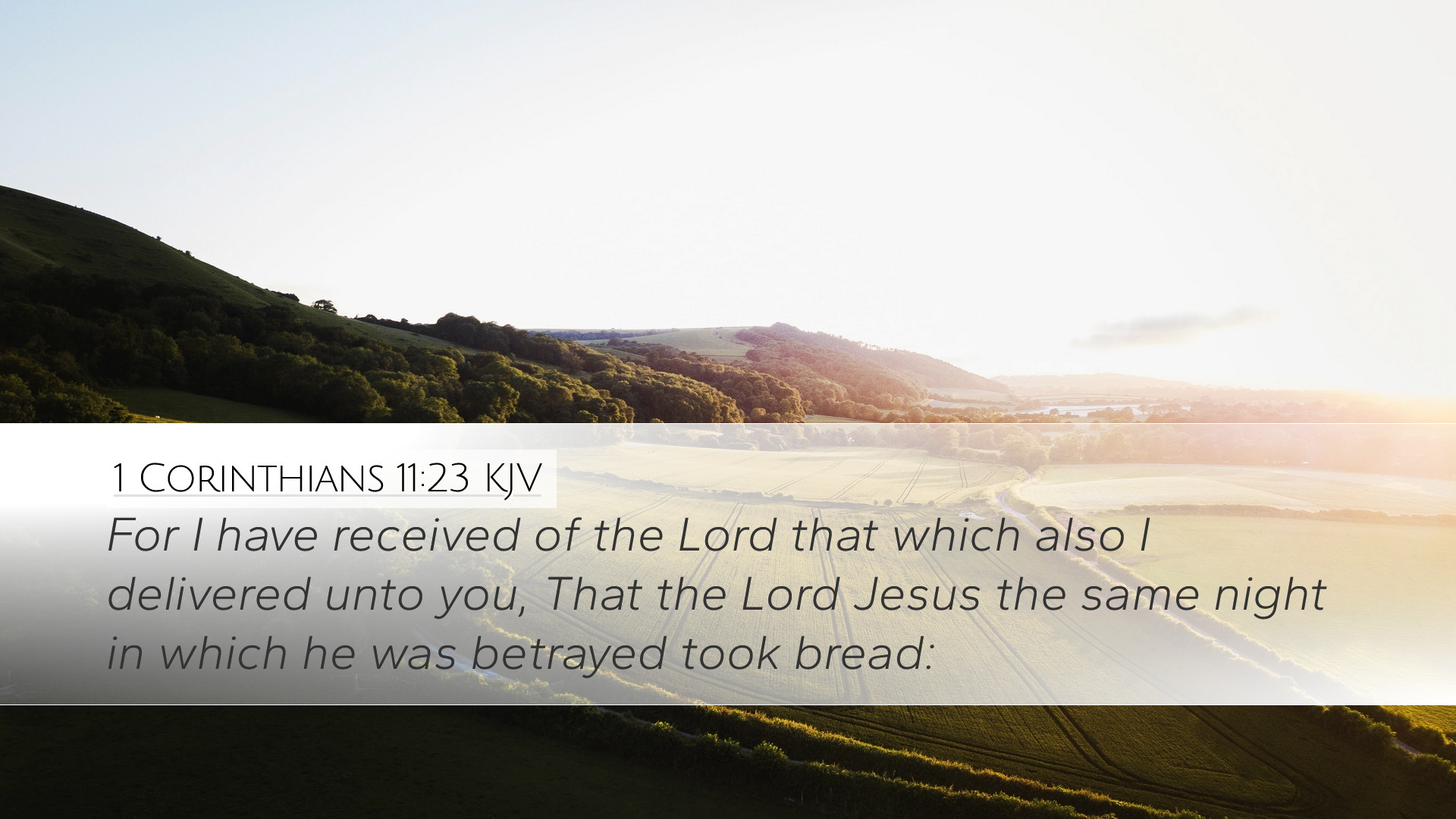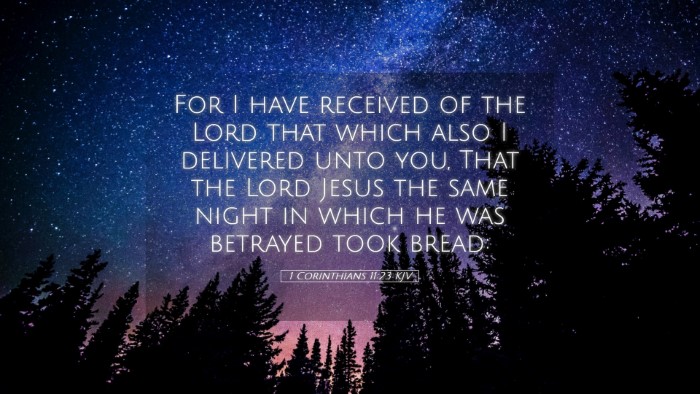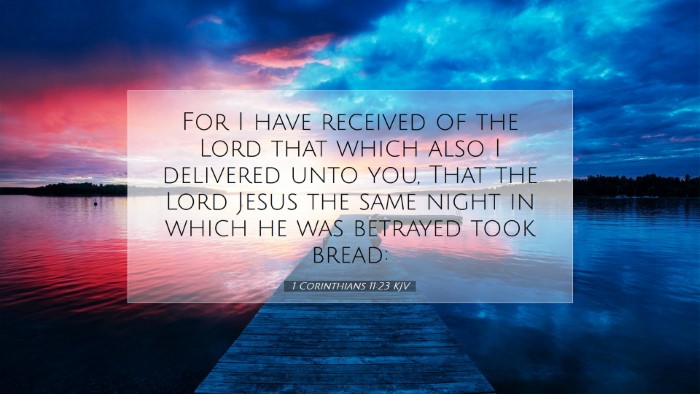Commentary on 1 Corinthians 11:23
Verse: "For I received from the Lord what I also delivered to you, that the Lord Jesus on the night when he was betrayed took bread."
Introduction
This verse provides a foundational understanding of the Eucharist and highlights the significance of the Lord's Supper in the early church. The Apostle Paul, as the author of this epistle, emphasizes his authority derived directly from the Lord Jesus, showcasing the divine origin of this instruction.
Exegesis and Theological Insights
This verse is pivotal in understanding not only the context of the Lord's Supper but also the continuity of the Christian faith. Each of the public domain commentaries provides unique insights into this passage that are invaluable for deeper study.
Matthew Henry's Commentary
Henry emphasizes that Paul is asserting the credibility of his teaching by stating that it is directly received from the Lord. This is significant as he counters divisions in the Corinthian church (1 Cor. 1:10-13) by grounding the practice of the Lord's Supper in Christ's authority.
- Divine Institution: The reference to "what I also delivered to you" stresses the idea of fidelity in teaching.
- Importance of Context: The phrase "on the night when he was betrayed" highlights the gravity and solemnity of the meal, which occurred in the context of betrayal and suffering.
- Historical Memorial: This moment becomes a point of remembrance for believers, providing a tangible connection to the sacrifice of Christ.
Albert Barnes' Notes on the Bible
Barnes elaborates on the apostolic tradition and the importance of remembrance. His commentary notes that the institution of the Lord's Supper was deliberate and holds profound significance for believers.
- Apostolic Tradition: Paul confirms that he is relaying foundational truths that originated with Christ, underscoring the continuity of the faith.
- Historical Context: The mention of betrayal serves to remind believers of the sacrificial nature of Christ's mission, adding a layer of worshipful acknowledgment during the observance.
- Communal Aspect: The verse invites believers into a shared remembrance, reinforcing community and unity centered on Christ.
Adam Clarke's Commentary
Clarke delves into the implications for the early church and the practice of the Lord's Supper. He asserts that this act is a continual reminder of Christ's sacrifice and the new covenant established through His blood.
- New Covenant: Clarke highlights how this act signifies the fulfillment of Old Testament sacrifices, creating a new relationship between God and humanity.
- Remembrance: He notes that this practice is fundamentally about remembering Christ and the events surrounding His sacrifice, calling believers to live in the light of this remembrance.
- Liturgical Structure: The commentaries suggest that such a structured remembrance invites believers into a deeper relationship with God, reminding them of their shared faith and commitment.
Practical Applications
Reflecting on this verse allows for several vital applications for pastors, students, theologians, and Bible scholars:
- Authority of Scripture: Emphasize the necessity of grounding teaching in the authority of Christ, as displayed in this verse.
- Communal Remembrance: Foster an environment where the Lord’s Supper is a communal act of remembrance, promoting unity in faith.
- Spiritual Reflection: Encourage personal and corporate reflection on the significance of Christ's betrayal and sacrifice, allowing it to shape worship and behavior.
- Eschatological Hope: Teach the implication of this remembrance as looking forward to Christ’s return, focusing on the hope of eternal life through Him.
Conclusion
In conclusion, 1 Corinthians 11:23 serves as a vital part of Christian teaching, illustrating the importance of the Lord’s Supper in expressing faith and remembrance. By integrating insights from noted scholars such as Matthew Henry, Albert Barnes, and Adam Clarke, pastors and scholars can delve into profound theological truths and practical applications that resonate deeply with the Christian faith.


